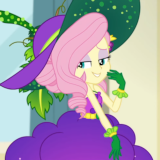Discussion: On Planning a Story · 8:06am Feb 2nd, 2014
Howdy, y’all.
I’ve been re-reading Stephen King’s On Writing recently, and a particular passage really made me stop and think about my approach to writing stories. Here’s the passage verbatim:
In my view, stories and novels consist of three parts: narration, which moves the story from point A to point B and finally to point Z; description, which creates a sensory reality for the reader; and dialogue, which brings characters to life through their speech.
You may wonder where plot is in all this. The answer—my answer, anyway—is nowhere. I won’t try to convince you that I’ve never plotted any more than I’d try to convince you that I’ve never told a lie, but I do both as infrequently as possible. I distrust plot for two reasons: first, because our lives are largely plotless, even when you add in all our reasonable precautions and careful planning; and second, because I believe plotting and the spontaneity of real creation aren’t compatible. It’s best that I be as clear about this as I can—I want you to understand that my basic belief about the making of stories is that they pretty much make themselves. The job of the writer is to give them a place to grow (and to transcribe them, of course). If you can see things this way (or at least try to), we can work together comfortably. If, on the other hand, you decide I’m crazy, that’s fine. You won’t be the first.
He goes on to develop this idea further, but the basic premise is there: he thinks plotting (or planning—I’ll use the terms interchangeably) is unimportant.
And, to be perfectly honest, I tend to agree.
There’s a myriad of authors out there, I’m sure, who disagree with King’s belief and plot out their own stories/novels down to the nitty-gritty, but that just doesn’t work for me. I’ve attempted to plan out stories before, and all of those stories have fallen flat—writing them felt like trying to stuff a cloud through a pinhole.
Most of my best stories, I feel, grow organically from a seed of an idea. A scene from the story (not the first scene, most of the time) pops into my head, and then I start writing, trying to find where that scene will blossom from my story’s stem.
Take The Firework Lotus, for example. It’s one of my personal favourite stories that I’ve written on here, and it was born in a very simple, spontaneous burst of inspiration. Here’s the story:
I was browsing the internet around New Year’s Eve and happened upon this comic. That made me think, Huh. A balloon tree’s a pretty magical, imaginative thing. I bet one of those would exist in Equestria for real. I wonder if I can create something similar. I don’t know why, but the firework lotus immediately appeared in my mind. It was like it already existed and I just grabbed it out of the ether.
So the basics of the lotus were already established in my mind: a flower that, when lit on fire, blossoms and releases a firework. From there I thought, It would be fun to work this into a story somehow. Well, let’s see. I need something to light the firework lotus on fire, so what exists in Equestria that makes fire? Spike breathes fire.
Boom. Story. That train of thought happened roughly five minutes before I started writing. I had nothing except that I wanted a scene where Spike ignited the firework lotus, and everything grew from there. Funny enough, because that scene is the last one in the story.
Most of my other stories have taken shape in similar ways: Obligations (what if Twilight forgot Spike’s birthday?), Rise from the Ashes (where did Philomena come from?), To Weep for Family (what if… well, we haven’t actually gotten to that point in the story yet, so I’ll refrain).
I’m not here to tell you whether this is a good or bad idea. Different authors and different stories take different approaches. I just wanted to share what works for me and that I do believe King’s philosophy is pretty sound. If stories are all about creation, why plan it out before it gets created? Let it happen naturally. You can reorganize it as much as you like in the second draft, anyway.
So I’ll leave you with some questions. Are you for or against plotting a story, and why? What’s your typical approach, and why do you think it works? Is Stephen King crazy?
Keep on keeping on,
-Argon




I think with me, I have the idea first, and then I plan around it. I often find myself envisioning scenes that happen later in a story, but everything leading up to those scenes is simply stream of consciousness that hopefully makes sense. More often than not, it does. But that doesn't mean I don't have to do some post-production every now and then.
is it weird that because that this is the way i write my stories that sometimes i have no idea what the characters are thinking and when i do finally write their dialogue it surprises even me?
1787428
That's typically how it works for me, too.
1787540 just read obligations for the first time..WOW thanks for making my day.
thanks for making my day.
you're quite the stroyteller!
glad im not the only crazy one!
After reading and hopefully understanding what Stephen King was saying, I suppose I'd have to agree. I've written stories before, but none have seemed quite as interesting or exciting to work with as one that I have written "organically," or fairly off the cuff. Yes, there were certain things that were not spontaneous, but it was the act of the character/s getting to that point in the story and interacting with those elements in ways that I may not have expected that I think made it far more fun to write and experience.
That said, every story could use some form of planning, but I don't have the patience to plot out every single point. Also, it's very inefficient. What if you think of something better!?
My two bits.